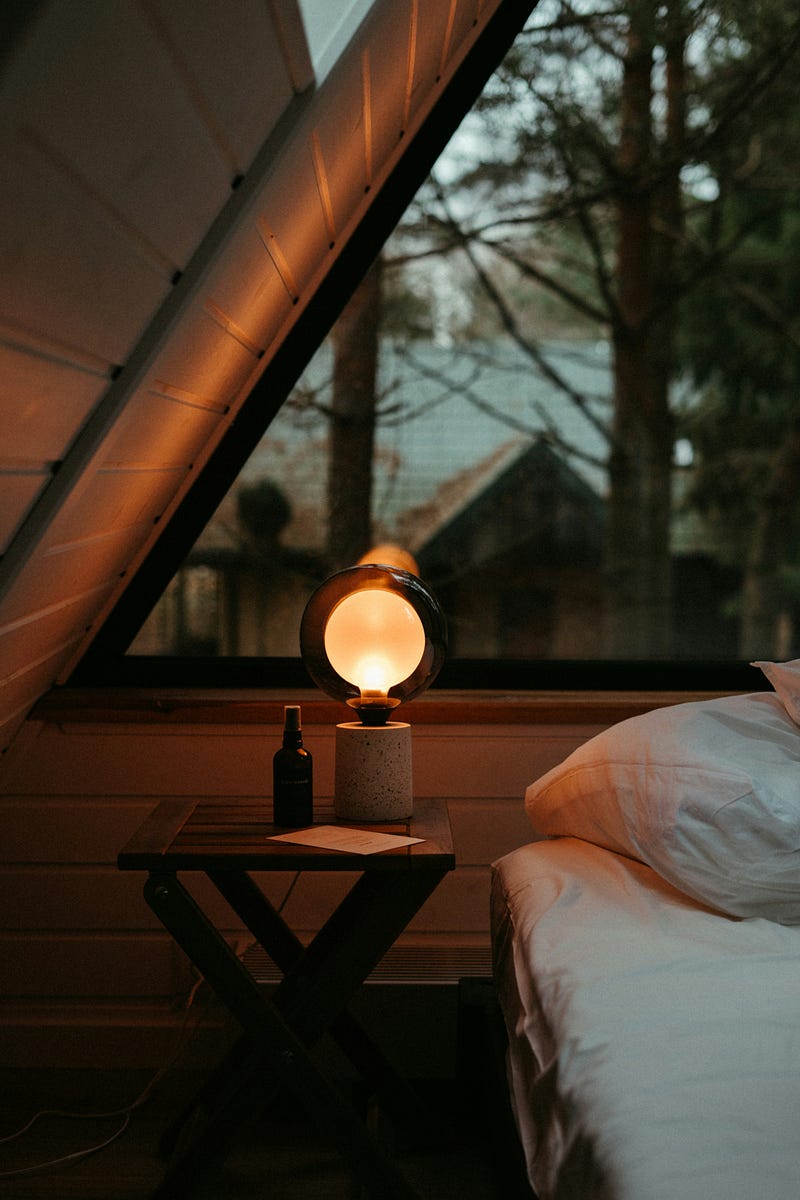Unlocking the Secrets to a Restful Sleep: Science and Tips
Written on
Understanding Sleep: A Foundation for Better Rest
Did you know that approximately one-third of our lives are spent sleeping? Despite this significant amount of time, many individuals struggle to achieve a restful night’s sleep. According to the Centers for Disease Control and Prevention (CDC), about one in three adults do not get sufficient sleep nightly. If you’ve ever found yourself tossing and turning in bed, you’re certainly not alone; it’s a common experience. In this article, we will explore the science of sleep and provide insights on how to achieve the restorative rest you deserve.

Photo by Alexandra Gorn on Unsplash
For many years, I struggled with insomnia, lying awake and staring at the ceiling while my thoughts raced uncontrollably. Each morning, I would wake up feeling exhausted and sluggish. It wasn't until I delved into sleep research that I finally discovered strategies to secure the restorative sleep I needed.
The Science of Sleep
Understanding the mechanics of sleep can illuminate its importance for our well-being.
Sleep Stages: Sleep is not a singular state; it unfolds in cycles comprising various stages. These include:
- NREM Sleep (Non-Rapid Eye Movement): This encompasses three phases, ranging from light sleep to deep slumber.
- REM Sleep (Rapid Eye Movement): This is the phase during which most dreaming occurs.
Sleep Cycle: A typical sleep cycle lasts around 90 minutes and occurs multiple times throughout the night. Each cycle incorporates both NREM and REM stages, and completing several cycles is essential for feeling rejuvenated.
Biological Clock: Our circadian rhythm, or internal clock, dictates our sleep-wake patterns. It reacts to light and darkness, explaining why we often feel tired as evening approaches. This is why keeping a consistent sleep schedule is vital.

Photo by Angelo Pantazis on Unsplash
Common Sleep Disorders
Several prevalent sleep issues may hinder your ability to rest:
- Insomnia: Difficulty falling or staying asleep can stem from stress, anxiety, or poor habits. This is particularly common for those with hectic lifestyles.
- Sleep Apnea: This disorder involves interruptions in breathing during sleep, leading to snoring and daytime fatigue. The American Sleep Apnea Association estimates it affects around 22 million Americans.
- Restless Leg Syndrome (RLS): This condition causes an overwhelming urge to move the legs, which can disrupt sleep.
- Nightmares and Night Terrors: Nightmares manifest as vivid dreams during REM sleep, while night terrors occur in NREM sleep, often causing distress.

Photo by Polina Kuzovkova on Unsplash
Strategies for Enhancing Sleep Quality
Various factors can influence your sleep experience:
- Lifestyle Choices:
- Diet: Consuming magnesium-rich foods like spinach and almonds can improve sleep. Avoid heavy meals, caffeine, nicotine, and alcohol before bedtime, as they can interfere with your ability to fall asleep.
- Exercise: Regular physical activity can help you fall asleep quicker and enjoy deeper rest. Aim for about 30 minutes of moderate exercise most days, but refrain from exercising too close to bedtime.
- Your Sleep Environment:
- Mattress and Pillow: Invest in a quality mattress and pillow that suit your preferred sleeping position and help regulate temperature.
- Room Setup: Maintain a cool (around 65°F or 18°C), dark, and quiet bedroom. Consider using blackout curtains and white noise machines to eliminate distractions.
- Technology: Blue light from screens can disrupt your circadian rhythm, tricking your brain into thinking it’s still day. Research indicates that exposure to blue light before bed can delay sleep onset. Limit screen time at least an hour before sleep, opting for reading or calming music instead. If necessary, utilize blue light filters available in device settings.
- Stress and Mental Health: Stress and anxiety are significant barriers to restful sleep. Mindfulness and relaxation techniques can help manage these challenges. Utilizing apps like Headspace or Calm for meditation can promote relaxation, as can various breathing and muscle relaxation methods.
- Establish a Routine: Going to bed and waking up at the same time daily, even on weekends, helps regulate your internal clock. This consistency makes it easier to fall asleep when you should.

Photo by Polina Kuzovkova on Unsplash
Implementing a short meditation routine before sleep has significantly improved my sleep quality. Going to bed feeling calm and at peace has made a notable difference, and I highly recommend it.

Photo by Jared Rice on Unsplash
Sleep Aids and When to Seek Professional Help
Sometimes, despite our best efforts, we may require additional support:
- Natural Remedies: Herbal teas like chamomile or valerian root can promote relaxation. Melatonin supplements may also be beneficial, but it’s wise to consult a healthcare provider first.
- Medical Help: If sleep difficulties persist, consider consulting a doctor or sleep specialist. They can diagnose and address underlying issues and may conduct sleep studies to monitor your patterns.

Photo by Nappy on Unsplash
Conclusion: The Path to Better Sleep
Achieving quality sleep is essential for both physical and mental well-being. By grasping the science of sleep and making a few lifestyle adjustments, you can significantly enhance your sleep quality, waking up refreshed and energized.
What are your favorite sleep strategies? Feel free to share your thoughts and tips in the comments below!
The first video, "Matthew Walker: The Science of Sleep & How to Perfect It," delves into the mechanisms behind sleep and offers practical advice for improving your sleep habits.
The second video, "Dr. Matt Walker: The Science & Practice of Perfecting Your Sleep," provides insights into the scientific principles of sleep and effective strategies for optimizing sleep quality.